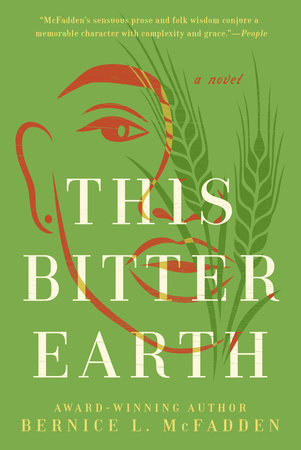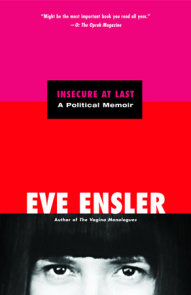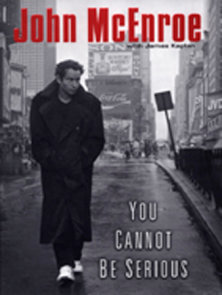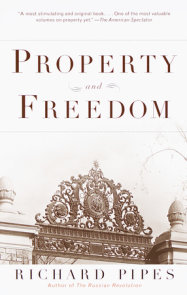READERS GUIDE
Questions and Topics for Discussion
INTRODUCTION
Terry McMillan hailed Sugar as “one of the most compelling and thought-provoking novels I’ve read in years.” Toni Morrison called The Warmest December, her second novel, “riveting…searing and expertly imagined.”
This Bitter Earth picks up where Sugar left off—on the dirt road leading to Sugar’s childhood home in Short Junction, Arkansas. Here, Sugar hears a shocking revelation about unrequited love, and about one man’s hatred—and the black magic that has cursed generations. Her travels take Sugar to St. Louis, where the bonds of an old friendship test the limits of her courage and compassion—and the sacrifices she will make for another young woman in desperate need of a caring friend.
Filled with the lyrical language, haunting imagery, and compelling voice that imbued Sugar with its power and grace, This Bitter Earth is a novel about the inexorable power the past exerts over us and our ability to triumph over adversity and sorrow. Earthy and richly evocative, it is a testament to the ultimate triumph of the human spirit.
ABOUT BERNICE L. MCFADDEN
Bernice L. McFadden was born, raised and currently lives in Brooklyn, New York. She is the eldest of four children and the mother of one daughter, R’yane Azsa.
Ms. McFadden attended grade school at P.S. 161 in Brooklyn and Middle School at Holy Spirit, also in Brooklyn. She attended high school at St. Cyril Academy an all-girls boarding school in Danville, Pa.
In the Fall of 1983 she enrolled in the noted NYC fashion college: Laboratory Institute of Merchandising, with dreams of becoming an international clothing buyer.
She attended LIM for two semesters and then took a position at Bloomingdale’s and later with Itokin, a Japanese owned retail company.
Disillusioned and frustrated with her job, she signed up for a Travel & Tourism course at Marymount College where she received a certificate of completion. After the birth of her daughter in 1988, Bernice McFadden obtained a job with Rockresorts a company then owned by the Rockefeller family.
The company was later sold and Ms. McFadden was laid off and unemployed for one year. She sights that year as the turning point in her life because during those twelve months Ms. McFadden began to dedicate herself to the art of writing. During the next nine years she held three jobs, always looking for something exciting and satisfying. Forever frustrated with corporate America and the requirements they put on their employees, Ms. McFadden enrolled at Fordham University. Her intention was to obtain a degree that would enable her to move up another rung on the corporate ladder.
She signed up for courses that concentrated on Afro-American history and literature, as well as creative writing, poetry and journalism. She credits the two years spent under the guidance of her professors as well as the years spent lost in the words of her favorite authors, to the caliber of writer she has become.
During those years, Ms. McFadden made a conscious effort to write as much as possible and began to send out hundreds of query letters to agents and publishers attempting to sell one of her short stories or the novel she was working on.
In 1997, Ms. McFadden quit her job and dedicated seven months to re-writing the novel that would become, Sugar In May of 1998, after depleting her savings, she took her last and final position within corporate America.
On Feb 9th, 1999, her daughter’s eleventh birthday (and Alice Walker’s birthday— one of Ms. McFadden’s favorite authors) she sent a query letter to an agent who signed her two weeks later and the rest is literary history!
Bernice L. McFadden is the author of three novels—the national bestsellers, Sugar and The Warmest December (now available in trade paperback from Plume) and the just-released sequel to Sugar, entitled This Bitter Earth.
She is at work on her next novel.
Praise
Praise for Bernice L. McFadden’s Sugar
“Unforgettable…a haunting story that keeps pages turning until the end.”—Essence
“Vivid.”—The New York Times Book Review
“Strong and folksy storytelling…think Zora Neale Hurston…Sugar speaks of what is real”— The Dallas Morning News
“One of the most compelling and thought-provoking novels I’ve read in years. Bernice McFadden is truly a welcomed voice in the literary world.”— Terry McMillan, bestselling author of A Day Late and A Dollar Short
AN INTERVIEW WITH BERNICE L. MCFADDEN
Tell us about your upbringing in the South. Are elements reflected in the story? Are any of the characters based on people you know?
While I wasn’t raised in the South, my mother was. The stories she’s shared with me over the years have been so vivid I guess that I’ve adopted the settings into my own stories. Yes, I think characteristics of people that are close to me have seeped into my characters.
How did your family’s tradition of storytelling influence your writing?
A very big influence. The stories shared around the table during a holiday meal were the highlight of the gathering and I so looked forward to hearing them over and over again. I want my stories to have the same effect— stories that people will always want to return to time and time again.
Sugar is primarily about Sugar and Pearl, with the male characters taking a back seat to the female characters. And yetSugar closes with a scene that has Joe as the focus. Why did you choose not to end the story with either Sugar or Pearl actually in the scene?
Sugar’s life was one big circle—every step forward put her closer to where she’d already been so it seemed only right that the story should end with a focus on Joe because he was the father to both Jude and Sugar, completing the circle.
As the mother of a daughter, was it difficult for you to write about Jude’s murder? Why did you choose to maximize the horror of Jude’s death by having the killer desecrate her body?
Fortunately it was not difficult to put that scene down on paper, although now when I go back to read it, it is a bit unnerving. The desecration was not a conscious choice, but exactly what I saw unfolding before me
Why did you choose to set the novel in the 1940s and 1950s instead of the present day?
My stories come to me as visions in bits and pieces—and I saw the 40’s & 50’s.
Sugar and Pearl’s friendship forms the basis of the novel. How important are friendships in women’s lives?
I take my relationships with women very seriously. I come from a family of women, so my respect for them is quite extraordinary. Friendships between women are sacred because we understand and feel for each other on levels that men are just not equipped to do.
In the beginning of Sugar there is a quote by Sarah Miles: “There’s a little bit of hooker in every woman. A little bit of hooker and a little bit of God.” Why did you choose to use this quote? How do you think it relates to the story?
That quote caught the whole essence of Sugar and Pearl. It speaks to the story and the good and not so good we all have inside of us.
This Bitter Earth, the sequel to Sugar, has recently been published. What can you tell us about it?
TBE is Sugar’s continuing story, but it’s also about a lot of the other characters that had to take a back seat in Sugar. TBE will delve further into Sugar’s past as well as explain the effects her presence and consequent departure in Bigelow had on the Taylors as well as the town residents.
Are you working on a new novel?
Yes, I’m working on a story that will examine why some people love the way they do and while still others are unable to love at all.
What writers do you admire? Have any of them influenced your work?
I have great respect and admiration for Toni Morrison, Alice Walker, J. California Cooper, and Marita Golden. They have written stories that I return to time and time again for encouragement and guidance whenever I feel I’ve lost my way in my own stories.
DISCUSSION QUESTIONS




















